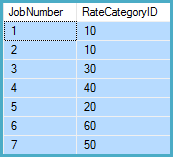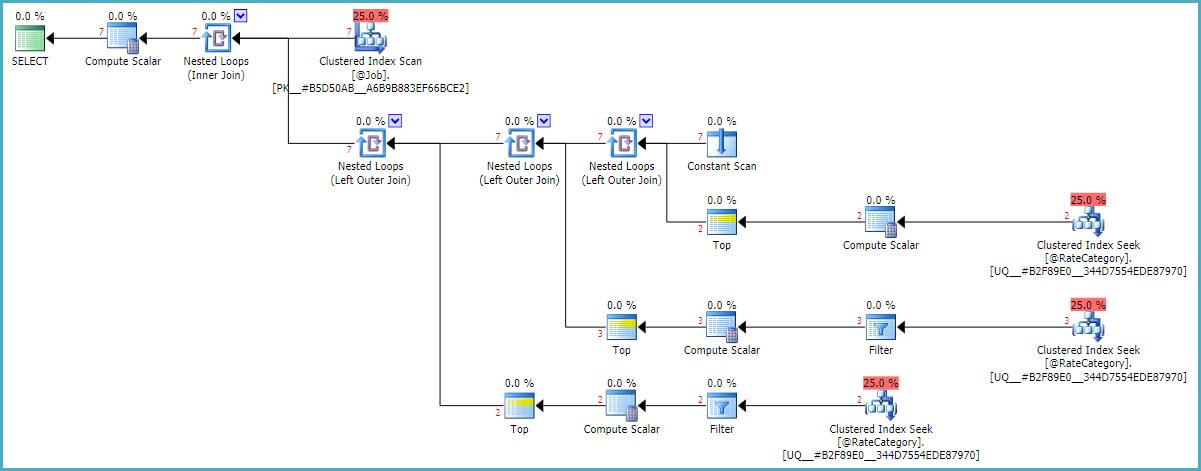I am having trouble getting the desired results when trying to relate the following tables.
NULL in the following table essentially means that if it is not an exact match with another row then choose this one. A wildcard if you will. I have 100% control over this table so if this is a bad design for what I am trying to accomplish please advise.
tblRateCategory
RateCategoryID Managed Customer Category
10 0 NULL NULL
20 0 NULL A
30 0 CustC A
40 1 CustC A
50 1 NULL A
60 0 NULL B
tblJob
JobNumber Managed Customer Category
1 0 CustA C
2 0 CustB D
3 0 CustC A
4 1 CustC A
5 0 CustD A
6 0 CustE B
7 1 CustF A
Desired results
JobNumber RateCategoryID
1 10
2 10
3 30
4 40
5 20
6 60
7 50
I have tried this which gave duplicate job numbers and incorrect RateCategoryID if Category and/or Customer has match. So I know I need to somehow look for match first and then settle for NULL or Any if no match found.
Select JobNumber, RateCategoryID
From tblJob J
Inner Join tblRateCategory RC
ON isnull(RC.Category,J.Category)=J.Category and
RC.Managed=J.Managed and isnull(RC.Customer,J.Customer)
Results from above query:
JobNumber RateCategoryID
1 10
2 10
3 10
3 20
3 30
4 10
4 20
4 40
5 10
5 20
6 10
6 60
7 10
7 50


